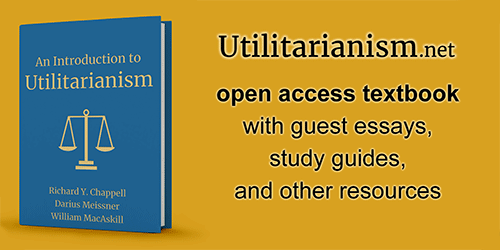Mini-Heap
New links…

- “What state was the Athenian advice industry in, that this stuff was noteworthy?” — possibly everything you need to know about Solon, courtesy of Brad Skow (MIT)
- “Celebrating the banning of authors and concepts as ‘freedom from indoctrination’ is as Orwellian as politics gets” — Jason Stanley (Yale) on education bans and how “the media’s portrayal of these laws as moves in the ‘culture wars’ is an unconscionable misrepresentation of fascism”
- “There are lots of laws protecting dogs and cats… it’s really a question of generalizing what we’re already doing” — Martha Nussbaum (Chicago) is interviewed for a new “Open Mind” segment on MSNBC (at around the 5 minute mark)
- The feel of the peel is really just what self-monitoring systems reveal — Keith Frankish (Sheffield) reports on an AI’s session with her human therapist
- There will be a fashion show, opera, belly dancing, martinis… and berets — public philosophy with flair, from Skye Cleary
- “When we rely on a piece of technology, we are not just relying on a piece of machinery. We are also implicitly relying on a group of people—designers, operators, and maintainers—whose work is required for the machine to work properly” — and this has implications for how to understand threats posed by new technologies, like deepfakes, argues Josh Habgood-Coote (Leeds)
- “Our standard human repertoire of sensing may be simply the starter-pack for our eventual modes of contact, both with other people and with the wider world” — Andy Clark (Sussex) and Gary Lupyan (Wisconsin) on what kind of telepathy makes sense, and how it might work in humans
Discussion welcome.
Mini-Heap posts usually appear when 7 or so new items accumulate in the Heap of Links, a collection of items from around the web that may be of interest to philosophers.
The Heap of Links consists partly of suggestions from readers; if you find something online that you think would be of interest to the philosophical community, please send it in for consideration for the Heap. Thanks!



If time and other work permits, I may get back to Stanley’s editorial and try to publish a follow-up somewhere. Overall it sounds the right notes, and I thought this was particularly well-put and important to emphasize:
There’s much to agree with here. But just to have it in the public record, I want to note that Stanley commits a howler of a modal fallacy in the middle of the editorial, inferring from a law (whose text he quotes) prohibiting instruction that students must feel race-based (and etc.) personal responsibility and anguish for events in which they played no part, to a conclusion that what is criminalized is instruction that results in feelings of anguish associated with one’s racial identity (“[t]he ‘anguish’ and ‘psychological distress’ these laws forbid are only anguish felt by the dominant racial group, white Americans”). I understand that it’s an editorial, and say what you want about the merits of either formulation, the fact is they’re importantly different, and it doesn’t do right by the public sphere to run them together.
Stanley reminds me of my old neighbor who would explain all the things he didn’t like (rap music, gay marriage, etc.) as “the work of the devil.”
It was funny the first few times, but eventually it got old.